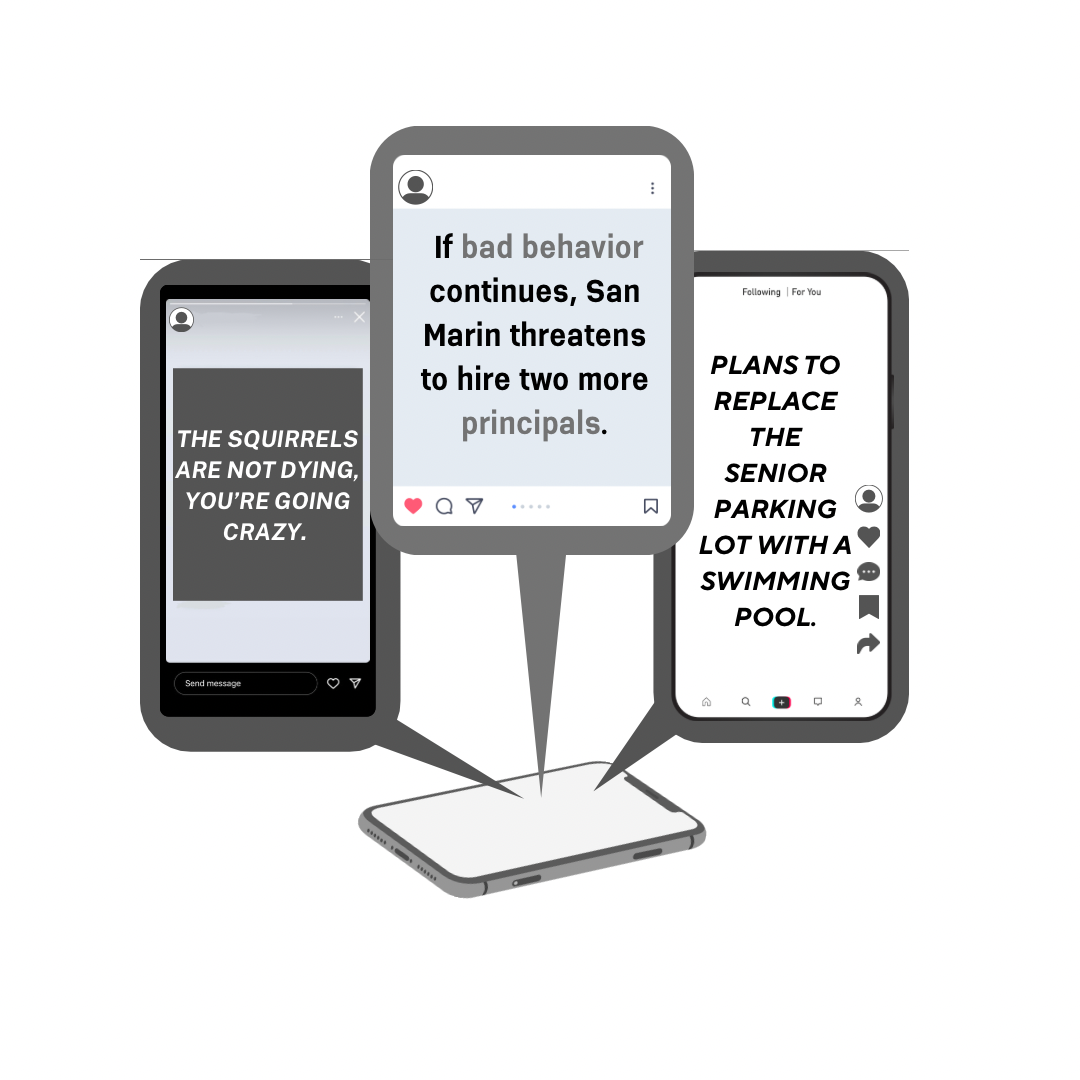
There are many upsides to finding news on social media, such as exposure to underrepresented issues and the speed at which information travels. Social media spreading the word of smaller stories is a positive thing, but accuracy rarely comes to mind.
Most students who use social media will come across a random post with an absurd news headline. While some may overlook this headline, others could adopt it as fact. This issue of disregarding credibility has affected members of the San Marin community.
“I’ve definitely fallen for [fake news]; I feel like it’s hard not to, especially with TikTok spreading a lot of information, and it’s hard to always check those kinds of things,” senior Lindsay Johnk said. “I feel like I could definitely do a better job of checking those things.”
“It’s hard…when so many people are affirming fake headlines.”
– Grace Venezia
Senior
Although most are aware of the dangers present in finding news on social media, many members of the community have still fallen for issues regarding credibility.
“I think there were a few [articles] about people dying, but I had to actually go to the direct source and I realized that they were talking about their career dying,” senior Evie Trott said.
Some may say that social media can be dangerous for its ease of maliciously spreading misinformation, while others argue that the dangers of social media don’t stop there. Students have reported feeling like bigger issues are difficult to cover on social media, because of its limited time frame.
“On apps like TikTok, you get 30 seconds to a minute to explain things, and people just scroll past that and don’t really think about who’s saying it and where the information is coming from, and if it’s even true,” Johnk said.
While some report feelings of malice coming from social media influencers trying to spread misinformation, many also describe the nature of social media, and how it is designed to spread information reported by other people.
Despite the growing instances of people noticing false information, there are still a number of people who are not aware of their credibility mishaps.
“Social media has become more of a source of entertainment…”
– Michael Spinrad
Social Studies Teacher
“I think a lot of social media is an echo chamber, and it’s hard to keep a strong mind and look into things with suspicion when so many people are affirming fake headlines or fake news,” senior Grace Venezia said.
When it comes to social media, credibility is often not at the forefront of people’s minds. This has led to a shift in the way some may view social media news, and potentially lessened the credibility of verified news reporters who use social media as their platform.
“Social media has become more of a source of entertainment rather than a medium of spreading information,” Social Studies teacher, Michael Spinrad said.
In the current state of social media news, deliberate and unintentional spreading of misinformation runs rampant, and while many are aware of this, few are aware of its consequences.
Some people put more focus on being aware that not everything they see on social media is true, which helps them stay more informed of the truth.
“At the end of the day it’s an individuals responsibility to check your sources,” senior Hailey Picardi said. “There’s really no way to stop the social media apps from spreading misinformation, it’s more about what we do with that, and it’s very important to stay educated individually.”





































